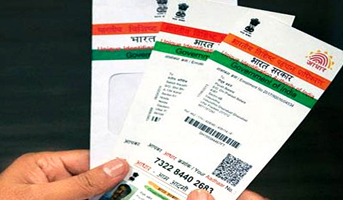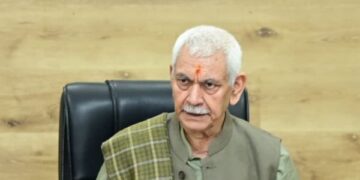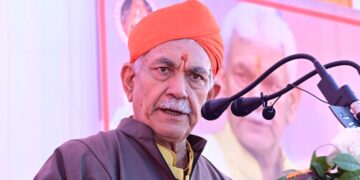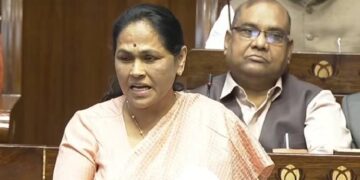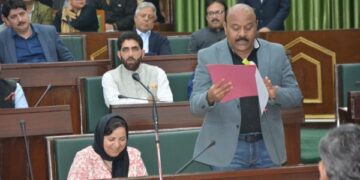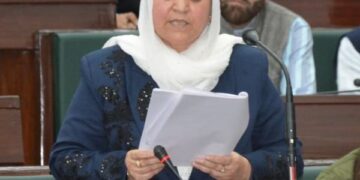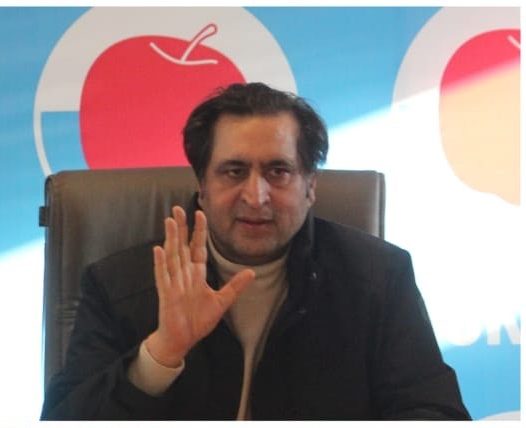Srinagar: The people of Kashmir, particularly students and government employees, are grappling with a mounting crisis due to discrepancies in their Aadhaar records.
What began as a routine process of correcting errors in dates of birth, names, parentage, or residential address, has spiraled into a nightmare, leaving thousands frustrated, who are demanding immediate intervention from authorities.
The rejection of school certificates by Aadhaar authorities has exacerbated the issue, forcing individuals into a labyrinth of red tape to obtain birth certificates. For many, the ordeal has become a daily struggle, with no end in sight.
Ubaid Ali, a Class 8 student, is one of the countless victims of this crisis. His birth certificate, issued by a hospital, was used for his school admission. However, his Aadhaar details, recorded at an Anganwari center, contain errors in his name and date of birth. Despite having accurate school records, Ubaid is now being asked to obtain a birth certificate from the Registrar of Birth and Deaths and a domicile certificate to correct his Aadhaar details.
“Why am I being punished for the mistake by an Aadhaar agent who wrongly recorded my details?” asks Ubaid’s father, Ali Mohammad. “This is not just an inconvenience; it’s a violation of our rights!”
Anisa Bano’s case is equally distressing. Despite having accurate Aadhaar and school records, she was forced to obtain a birth certificate from the Registrar of Births and Deaths. The process took her 30 days, as she had to provide a hospital record even when she had been delivered (born) at home.
The village Chowkidar attested to her birth, but the ASHA worker refused authentication, citing lack of records. The Panchayat Secretary, who has no official role in recording births or deaths, further complicated the process.
“This system is broken,”Anisa says. “I had to run from office to office, facing endless questions and delays, just to prove my own identity. How is this fair?”
The root of the problem lies in the flawed Aadhaar enrollment process, where the agencies who had been outsourced (hired for) this work incorrectly recorded details for thousands of individuals.
Previously, students could rectify errors using school records, but Aadhaar authorities now refuse to accept certificates from schools up to Class 9 as proof of date of birth. Instead, individuals must obtain a certificate from the Registrar of Birth and Deaths, a process that involves: 1. Visiting hospitals, ASHA workers, Numberdars, Chowkidars, and Panchayat Secretaries. 2. Obtaining an affidavit from a Judicial Magistrate. 3. Submitting the application to the Registrar of Birth and Deaths, who forwards it to a First-Class Magistrate. 4. Publishing a notice in the newspapers to allow for public objections. 5. Finally, after clearance, the Magistrate directs the Registrar to issue the birth certificate.
This convoluted process, which takes over a month, is causing immense hardships to the public.
“Why should we suffer for mistakes made by Aadhaar agents?” asks Mohammad Shafi, a parent. “The authorities must simplify this process immediately.”
Adding to the distress, Aadhaar centers are reportedly charging Rs 100-200 for updates and corrections. Additionally, obtaining a birth certificate requires various documents and affidavits, further increasing the financial burden on the applicants. The bureaucratic maze forces people to spend significant amounts of money and time for corrections that should be straightforward.
The crisis has far-reaching consequences. Students’ accurate school records are frozen in UDISE Plus, a database under the Ministry of Education. With the introduction of APAAR ID (Automated Permanent Academic Account Registry) under the National Education Policy (NEP) 2020, students now require parental consent to validate their records under ‘One Nation One Student ID Card”.
However, any discrepancies between Aadhaar and UDISE data create additional hurdles, as changes to UDISE Plus are now severely restricted due to which school authorities and teachers at elementary and secondary level are also facing a lot of distress and inconvenience.
Employees and the general public are also suffering due to Aadhaar-linked mismatches across government databases. Minor spelling variations in names, such as ‘Abdul Mohammad’ vs. ‘Ab. Mohd.’ or ‘Ghulam Rasool Bhat’ vs. ‘Lassi Bhat,’ have led to Aadhaar failing to sync with banking and revenue records.
“This is not just about inconvenience; it’s about our livelihoods,” says Ghulam Nabi, a government employee. “I can’t access my salary because my name is spelled differently in Aadhaar and bank records. How is this acceptable?”
The Supreme Court has ruled that Aadhaar is not a valid proof of age, stating that school leaving certificates and birth certificates are more appropriate.
In the 2018 case of Justice K.S. Puttaswamy (Retd.) and Anr. vs Union Of India, the court reaffirmed that Aadhaar is only a proof of identity and not of citizenship or domicile. A 2024 circular by the Employees’ Provident Fund Organisation (EPFO) further removed Aadhaar from the list of acceptable documents for proof of date of birth.
Despite these rulings, government agencies continue to rely on Aadhaar for authentication, creating a disconnect between legal mandates and administrative practices.
“The government must align its policies with the Supreme Court’s rulings,” says advocate Arshad Hussain. “The current system is causing unnecessary suffering to the public.”
The people of Kashmir are demanding immediate intervention from authorities to address this crisis. “We need a simplified process for correcting Aadhaar details,” says student leader Aatif Ahmed. “The current system is punishing innocent people for no fault of their own.”
Parents, students, and employees are also calling for greater accountability from Aadhaar authorities. “The outsourcing agencies that made these errors must be held responsible,” says Fatima Begum, mother of two. “We cannot continue to suffer because of their negligence.”
The refusal of Aadhaar authorities to accept school certificates for date of birth verification has turned a routine correction process into a bureaucratic nightmare. The people of Kashmir, especially students and employees, are paying the price for a flawed Aadhaar enrollment process.
Unless immediate reforms are introduced to streamline document acceptance and verification, the public will continue to suffer unnecessary inconvenience and hardships. The authorities must act now to restore faith in the system and ensure that no one is denied their rights due to administrative failures.
“The government must intervene immediately,” says social activist Ghulam Rasool Bhat “This is not just a bureaucratic issue; it’s a humanitarian crisis that demands urgent action.”
The clock is ticking, and the people are watching. Will the authorities rise to the occasion, or will the suffering continue? Only time will tell.
Repeated attempts to contact the Unique Authority of India on their given numbers 011 – 23478653, and tollfree 1947 bore no fruit!

